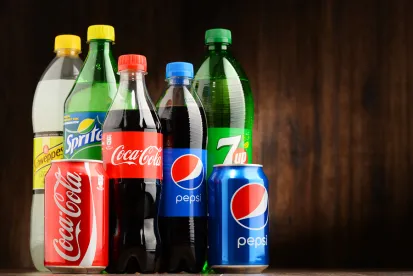As previously reported , Oregon and Washington state residents headed to the polls on November 6, 2018 to vote on initiatives that would preemptively ban new soda and food taxes. Despite similarities in terms of context and likelihood to succeed, the two initiatives came to very different results. Oregon’s Measure 103 was defeated, with 57.7% “No” votes to 42.3% “Yes” votes, whereas Washington’s Initiative 1634 was approved after receiving 54.8% “Yes” votes to 45.2% “No” votes.
As a reminder, Oregon’s Measure 103 would have amended the state constitution to prohibit the state and local governments from passing taxes on groceries, defined as “raw or processed food or beverages intended for human consumption,” excluding alcohol, tobacco, and marijuana. Thus, Measure 103 would have prevented the taxing of soda or sugary beverages. Prior to the election, Oregon did not have a statewide sales tax—including on groceries—but also had no law preventing local governments from establishing such a sales tax.
Washington’s Initiative 1634, also known as the Prohibit Local Taxes on Groceries initiative, prohibits local governments from passing new taxes or fees on groceries, defined as “any raw or processed food or beverage, or any ingredient thereof, intended for human consumption.” Groceries include, but are not limited to, meat, produce, grains, dairy, seasonings, and condiments. Alcoholic beverages, tobacco, and marijuana products do not qualify as grocery items and are not exempt from new taxes. As discussed in our January 2, 2018 blog, the city of Seattle enacted a soda tax, which went into effect in January 2018. While Washington’s newly approved initiative will not repeal the Seattle soda tax, it will prevent other cities and local governments in the state from passing similar taxes. Notably different from the Oregon initiative, Washington’s Initiative 1634 does not prevent the state from imposing taxes on groceries Additionally, the initiative prohibits any existing taxes, fees, or assessments from being increased.
As expected, both Oregon and Washington’s initiatives garnered much criticism. Critics of both initiatives say the true purpose of the laws is not to prevent taxes on groceries or rising food costs, but to ban soda and sugar-sweetened beverage taxes altogether. Similarly, critics likened these measures to strategies deployed by the tobacco industry in opposing city ordinances aimed at secondhand smoke. However, proponents of the measures, such as the American Beverage Association, argued that such taxes are ineffective, discriminatory, and responsible for increasing food costs. Needless to say, in light of the criticism and mixed election results, Oregon and Washington’s initiatives indicate that the battle over soda taxes wages on.



 />i
/>i

